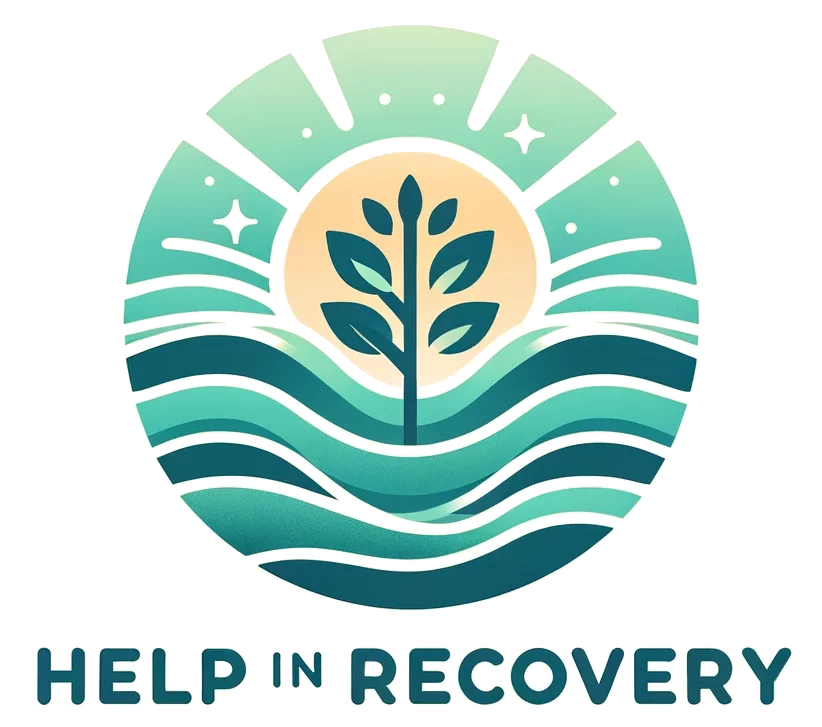How to Stop Drinking Alcohol Every Night: A Journey to Sobriety and Wellness
Welcome to this transformative guide aimed at individuals seeking to stop drinking every night. Drawing from personal experiences, expert insights, and practical strategies, this guide offers a holistic approach to achieving a balanced and sober life. Whether you’re just starting your journey or looking for additional support, this guide is here to empower and inform every step of the way.
Key Takeaways
| Aspect | Key Insights |
|---|---|
| Understanding Risks | Recognizing the physical and psychological impacts of nightly drinking is crucial for motivating change. |
| Neuroscience of Addiction | Insights into how alcohol affects the brain, aiding in managing cravings and understanding withdrawal. |
| Changing Drinking Patterns | Identifying triggers and adopting healthier coping mechanisms to alter habitual drinking. |
| Supportive Environment | The importance of creating a space that reinforces sobriety and supports new, healthier habits. |
| Sober Support Network | Leveraging support groups and professional therapy for accountability and guidance. |
| Holistic Recovery Approaches | Embracing physical, mental, and emotional wellness to enhance recovery effectiveness. |
| Sharing Recovery Stories | The power of shared experiences in fostering a sense of community and belonging in the recovery journey. |
| Conclusion and Action | Encouragement to embrace each step of the journey as a move towards a more fulfilling, sober life. |
Understanding the Risks of Nightly Alcohol Consumption
Embarking on a journey to reduce or stop nightly alcohol consumption is a courageous and necessary step for many, including myself. This section, informed by my personal experiences, competitor research, and reliable sources, aims to illuminate the risks associated with habitual nightly drinking.
Physical Health Implications
The toll of regular alcohol consumption on physical health is significant and multifaceted:
- Increased Risk of Diseases: Chronic drinking elevates the risk of liver diseases, heart disease, diabetes, and various cancers. The consistent intake of alcohol each night can drastically amplify these risks.
- Dependency and Tolerance: A gradual increase in tolerance leads to higher alcohol consumption, paving the way for dependency. This pattern often develops subtly, becoming a significant concern over time.
- Withdrawal Symptoms: The journey to reducing or stopping alcohol can lead to withdrawal symptoms, which vary in severity from mild discomfort to serious health risks.
The Psychological Toll
The impact of regular alcohol consumption is profound on mental health:
- Mood and Behaviour Changes: Conditions like depression and anxiety can worsen with regular alcohol use. What might begin as a coping mechanism can quickly turn into a compounding problem.
- Cognitive Impairments: Memory, decision-making, and overall cognitive abilities can be significantly impaired by frequent drinking, leading to long-term brain damage.
Personal Journey and Reflection
Reflecting on my journey, the denial about the effects of my drinking habits was a major hurdle. It was not just the physical health concerns but also the deteriorating mental health, strained relationships, and diminished work performance that highlighted the need for change.
Insightful Learnings from Research on How To Stop Drinking Every night
Research from sources like the National Institute on Alcohol Abuse and Alcoholism (NIAAA) provides deep insights into the neurological impacts of addiction. Cleveland Clinic Health Essentials emphasises the importance of avoiding triggers and the benefits of community support in recovery.
Internal Link: Nutrition and Alcohol Recovery
An integral part of understanding the risks of nightly drinking is recognising the role of nutrition in recovery. You can learn more about this in our detailed article on Nutrition in Alcohol Recovery.
Conclusion
Understanding these risks is vital in motivating individuals to pursue a healthier, more balanced life. Recognising the physical and psychological impacts of nightly drinking is the first step in a challenging yet rewarding journey towards recovery.
Neuroscience Behind Alcohol Addiction and Recovery
The journey to understanding and overcoming nightly alcohol consumption deeply intertwines with the neuroscience of addiction. My personal battles with alcoholism, combined with scientific insights, have illuminated the profound effects of alcohol on the brain, shaping my path to recovery.
The Cycle of Addiction
Addiction is a complex cycle involving various stages and brain regions:
- Binge/Intoxication Stage: Here, alcohol consumption activates the brain’s reward system, linking the pleasurable experience with environmental cues, creating a strong motivation to drink.
- Withdrawal/Negative Affect Stage: This stage is marked by a decrease in the reward circuit activity and an increase in stress circuits, leading to negative emotional states such as anxiety and irritability.
- Preoccupation/Anticipation Stage: Impairments in executive function processes, such as impulse control, become prominent, driving strong urges or cravings to drink, especially in response to stress or related negative emotions.
The Brain’s Response to Alcohol
Understanding how the brain responds to alcohol is crucial in grappling with addiction:
- Reward Pathway Disruption: Alcohol’s interference with the reward pathway, particularly through its stimulation of beta-endorphins and dopamine, fosters an addictive cycle. This disruption leads to a need for increased alcohol intake to achieve the same level of euphoria, a hallmark of dependency.
- Emotional and Physical Pain: Alcohol can temporarily reduce emotional and physical pain, but as it wears off, these sensations return with greater intensity, often leading to a cycle of misregulation and relapse.
My Personal Reflection
Reflecting on my journey, understanding these neurological aspects was a turning point. Recognising the science behind my cravings and emotional states during withdrawal provided a framework to approach my recovery with more compassion and strategic planning.
Research
Research from the National Institute on Alcohol Abuse and Alcoholism (NIAAA) emphasises the neurobiological bases of addiction, highlighting how addiction affects various brain regions and their interconnectedness. Cleveland Clinic’s insights into the impact of alcohol on the brain underscore the importance of recognising and avoiding triggers and seeking support in recovery.
Strategies for Breaking the Cycle of Drinking Every Night
Informed by neuroscience, several strategies can be employed to break the cycle of addiction:
- Mindful Awareness: Being aware of triggers and understanding the brain’s response can help in developing strategies to cope with cravings.
- Building New Habits: Replacing drinking with healthier activities can rewire the brain’s reward system, gradually reducing the incentive salience attached to alcohol.
- Seeking Professional Help: Therapies that focus on modifying thought patterns and behaviours can be effective in addressing the neurological aspects of addiction.
Conclusion
Grasping the neuroscience behind alcohol addiction provides a powerful tool in the journey to recovery. It offers a scientific basis for understanding the challenges faced during withdrawal and emphasises the importance of a comprehensive approach to breaking the cycle of addiction.
Tracking and Changing Drinking Patterns
In the journey to stop nightly alcohol consumption, understanding and modifying your drinking habits is crucial. Reflecting on my own experiences, I’ve seen how vital it is to recognise why and when I turned to alcohol. This section, drawing from both personal experiences and relevant research, explores practical steps to alter these patterns.

Recognising Drinking Habits
Identifying your alcohol consumption patterns is the first step towards change:
- Track Your Drinking Habits: Maintaining a journal of your drinking can reveal patterns and triggers. Note down when and why you drink to understand the underlying reasons.
- Acknowledge Emotional Triggers: Often, alcohol is used as a coping mechanism for dealing with emotions like anxiety or sadness. Being aware of these emotional triggers is essential for finding healthier coping strategies.
The Role of Alcohol as a Coping Mechanism
Alcohol often serves as a temporary escape from stress or emotional pain, but it can exacerbate these issues over time. This can lead to a cycle of dependence where alcohol becomes the go-to method for handling life’s challenges.
Personal Insights
In my journey, I realised that alcohol had become a way to manage stress and social anxiety. Recognising this was a turning point, prompting me to seek healthier alternatives such as exercise and meditation.
Integrating Expert Advice
Expert advice, such as that from Cleveland Clinic Health Essentials, underscores the importance of recognising and avoiding triggers. Similarly, insights from sources like Priory Group highlight the gradual increase in alcohol consumption and its associated risks.
Strategies for Altering Drinking Patterns
Here are some effective strategies to change your drinking habits:
- Develop New Coping Mechanisms: Replace alcohol with healthier activities like exercise or hobbies. Engaging in activities that you enjoy can be a powerful way to combat the urge to drink.
- Set Clear Goals: Establish specific, achievable goals regarding your alcohol intake. Whether it’s reducing the amount you drink or setting certain days as alcohol-free, clear goals can guide your efforts.
- Seek Support: Don’t hesitate to engage with support groups or professional help. Having a support system can provide the guidance and encouragement needed to change these patterns.
Conclusion
Altering drinking patterns is a challenging yet essential aspect of recovery. It involves a deep understanding of your habits and triggers, coupled with a commitment to healthier practices. This change, while difficult, is a significant step towards a balanced and sober life.
Environment and Habit Transformation for Alcohol Reduction
Creating an environment that fosters recovery is a critical aspect of stopping nightly alcohol consumption. My journey taught me the importance of shaping my surroundings to support my sobriety goals. This section, blending personal insights with research-based strategies, offers guidance on transforming your environment and habits to aid in alcohol reduction.
Crafting a Supportive Environment
The spaces we inhabit can significantly influence our recovery journey:
- Remove Alcohol and Related Items: Start by clearing your home of alcohol and any items associated with drinking. This reduces temptation and helps to break the association between your environment and alcohol consumption.
- Create a Soothing Space: Transform your living space into a sanctuary that promotes relaxation and well-being. Consider elements like soft lighting, comfortable seating, and calming colours.
The Importance of a Routine
Establishing a healthy routine is crucial in the recovery process:
- Set a Regular Schedule: Try to stick to a regular daily routine, including consistent sleep patterns, meal times, and periods for relaxation or hobbies.
- Incorporate Healthy Activities: Include activities that promote well-being, such as exercise, meditation, or engaging in a new hobby. These can serve as positive alternatives to drinking.
My Personal Experience
In my own recovery, redesigning my living space and establishing a new routine were game-changers. Replacing the wine glasses with tea mugs and dedicating time each day for mindfulness or a walk outside helped me immensely.
Reflecting on Expert Insights
Expert research highlights the significance of environment in recovery. For example, Healthline discusses the importance of avoiding triggers, while Verywell Mind focuses on establishing new, healthier habits.
Strategies for Environmental and Habitual Change
Implementing changes in your environment and routine can be transformative:
- Redesign Your Living Area: Make your living area less conducive to drinking. This could mean rearranging furniture, introducing new decorations, or creating a special nook for relaxation and reflection.
- Establish New Rituals: Replace the ritual of pouring a drink with something healthier, like brewing a cup of herbal tea or engaging in a brief meditation session.
Conclusion
Transforming your environment and daily habits plays a pivotal role in reducing nightly alcohol consumption. By creating a space that supports your sobriety and establishing routines that promote health and well-being, you can significantly enhance your recovery journey.
Managing Withdrawal and Alcohol Cravings
Addressing withdrawal symptoms and alcohol cravings is a vital part of reducing nightly alcohol intake. Drawing on my own journey, alongside insights from authoritative sources, this section offers strategies to manage these challenges effectively.
Understanding Withdrawal Symptoms
Withdrawal can manifest in various forms, and being prepared is crucial:
- Physical Symptoms: These may include headaches, nausea, and tremors. In more severe cases, withdrawal can lead to serious conditions like seizures.
- Emotional Symptoms: Common emotional symptoms include anxiety, irritability, and mood swings, which can be just as challenging as the physical ones.
My Experience with Withdrawal
During my recovery, I grappled with both physical discomfort and emotional turbulence. Recognising these symptoms as a normal part of withdrawal was a key step in managing them effectively.
Coping with Alcohol Cravings
Cravings are a common and natural part of recovery. Here are some ways to cope:
- Identify Triggers: Understanding what triggers your cravings is crucial. These can be emotional, environmental, or social.
- Develop Coping Strategies: Once you know your triggers, you can create strategies to deal with them, like avoiding certain situations or seeking support.
Mindfulness and Relaxation Techniques
Incorporating mindfulness can significantly aid in managing cravings:
- Deep Breathing Exercises: Deep breathing helps calm the mind and body during intense cravings.
- Mindfulness Meditation: Regular meditation increases awareness of thoughts and feelings, aiding in craving management.
Integrating Professional Support
Seeking professional help can be vital in effectively managing withdrawal and cravings:
- Counselling and Therapy: These can provide essential strategies and tools to deal with cravings and withdrawal symptoms.
- Medication-Assisted Treatment: In some cases, medication can be used to manage withdrawal symptoms and reduce cravings, under professional guidance.
Insights from Expert Research
Research and insights from sources like Healthline and Verywell Mind underscore the importance of professional support and holistic approaches in managing withdrawal and cravings.
Internal Link: Self-Care in Recovery
Self-care plays a crucial role in managing withdrawal and cravings. Discover more about self-care strategies in our article on Self-Care Strategies in Recovery.
Conclusion
Navigating withdrawal symptoms and alcohol cravings is a crucial aspect of reducing nightly drinking. By understanding these challenges, employing coping strategies, and seeking professional support, these hurdles can be effectively managed, paving the way for a healthier, sober life.
Building a Sober Support Network
The journey to overcoming nightly drinking is immensely bolstered by a strong support network. My experience, along with insights gleaned from various recovery-focused platforms, underscores the importance of community and professional help in recovery.
The Value of Support Groups
Participation in support groups offers several benefits:
- Shared Experiences: Learning from others in similar situations can provide comfort and a sense of belonging. This aspect is often highlighted by recovery resources, emphasising the power of shared stories and mutual understanding.
- Accountability: A group setting offers a level of accountability that can be both motivating and encouraging.
- Diverse Perspectives: Exposure to different coping strategies and insights from others in recovery can be enlightening.
Personal Reflections on Finding Community
In my own recovery journey, connecting with groups like Alcoholics Anonymous (AA) was a pivotal moment. It was here that I realised the power of shared experiences and the strength found in a recovery community.
Professional Support: Therapy and Counselling
Engaging with professionals can offer tailored support:
- Therapy: Therapists can help unravel the deeper issues contributing to alcohol dependence.
- Counselling: Addiction counsellors provide targeted strategies and support, as noted by resources like Verywell Mind.
Learning from Others’ Stories
Hearing and learning from others’ recovery stories can offer both inspiration and practical advice. Support group meetings, therapy sessions, and online platforms are rich sources of these stories.
Embracing Holistic Methods
Incorporating holistic methods like mindfulness and wellness activities can effectively complement traditional support methods.
The Role of Online Resources
Online platforms provide additional support and information. Websites like Verywell Mind offer a wealth of resources for those navigating alcohol addiction.
Internal Link: Benefits of Support Groups in Recovery
Gain a deeper understanding of how support groups can aid in recovery by reading our article on Benefits of Support Groups in Recovery.
Conclusion
Creating a robust support network is a critical element in the recovery process. Whether through support groups, professional therapy, or online resources, finding the right kind of support is a key step in overcoming nightly alcohol consumption.
Holistic Approaches in Alcohol Recovery
Adopting a holistic approach to recovery is essential when striving to stop nightly drinking. My own path to sobriety was greatly enriched by incorporating various aspects of wellness. This section, enriched by expert insights and personal reflections, delves into the multifaceted nature of holistic recovery.
Embracing Physical Wellness
Physical health plays a crucial role in recovery:
- Balanced Nutrition: A nutritious diet can help repair the physical damage caused by alcohol and improve overall well-being.
- Regular Exercise: Physical activities, whether it’s yoga, running, or even walking, not only improve physical health but also reduce stress and improve mood.
Mental and Emotional Health
Addressing mental and emotional health is equally important:
- Mindfulness Practices: Activities like meditation and mindfulness can significantly reduce stress and anxiety, common triggers for alcohol abuse.
- Therapy and Counselling: Engaging in therapy can help address underlying emotional or mental health issues related to alcohol dependence.
My Journey with Holistic Wellness
Incorporating a holistic approach was transformative in my recovery. I realised that caring for my body through nutrition and exercise and nurturing my mind through meditation and therapy were integral to maintaining sobriety.
Expert Insights on Holistic Recovery
Expert resources like SAMHSA’s Treatment Locator offer invaluable guidance on holistic treatment options. Additionally, insights from platforms like Healthline highlight the importance of addressing both physical and mental health in recovery.
Exploring Alternative Therapies
Alternative therapies can offer additional support:
- Acupuncture: Known for its stress-relieving properties, acupuncture can be a beneficial addition to recovery treatment.
- Art and Music Therapy: These creative outlets offer therapeutic ways to express emotions and reduce stress.
The Role of Social Wellness
Social connections and relationships play a pivotal role in recovery:
- Building Supportive Relationships: Surrounding yourself with supportive friends and family can provide encouragement and a sense of stability.
- Community Involvement: Engaging in community activities or volunteer work can foster a sense of belonging and purpose.
Internal Link: Wellness Unveiled
For a more detailed exploration of wellness tools and resources for holistic recovery, check out our article on Wellness Unveiled: Top Tools and Resources for Holistic Recovery.
Conclusion
A holistic approach to alcohol recovery encompasses not just abstaining from alcohol but also nurturing the body, mind, and social connections. It’s about creating a lifestyle that supports sobriety and overall well-being. Embracing this multifaceted approach can lead to a more fulfilling and sustained recovery.
Sharing and Learning from Recovery Stories
Sharing personal stories and learning from others’ experiences are powerful tools in the journey of recovery from nightly drinking. My own path was significantly shaped by the stories I shared and heard. This section, enriched with expert insights and personal narratives, emphasises the value of shared experiences in recovery.
The Power of Sharing Your Story
Opening up about your journey can have several benefits:
- Cathartic Experience: Sharing your struggles and victories can be a profoundly cathartic experience, helping to process your emotions and experiences.
- Inspiring Others: Your story can be a source of inspiration and hope for others who are facing similar challenges.
- Building Connections: Sharing creates a sense of community and belonging, fostering connections with others in recovery.
My Experience with Sharing
Reflecting on my journey, I realised the profound impact of sharing my story. It not only helped me process my own experiences but also connected me with others, creating a supportive network.
Learning from Others
Listening to others’ stories can be just as powerful as sharing your own:
- Gaining New Perspectives: Hearing about others’ experiences can provide new insights and strategies for dealing with challenges.
- Feeling Less Alone: Understanding that others have faced similar struggles can reduce feelings of isolation.
Expert Insights on Shared Experiences
Resources like Verywell Mind and Healthline underscore the importance of community and shared experiences in recovery. They highlight how group therapy and support groups can provide a platform for these exchanges.
The Role of Online Platforms
In today’s digital age, online platforms and forums provide additional avenues for sharing and learning:
- Virtual Support Groups: Online groups offer a space to share stories and support, especially beneficial for those who might not have access to in-person groups.
- Blogs and Social Media: Writing a blog or engaging in recovery-focused social media communities can also be a way of sharing your journey and connecting with others.
Internal Link: Sharing Your Recovery Stories
Read more about the importance of sharing and learning from recovery stories in our article on Share Your Recovery Stories.
Conclusion
Sharing and learning from recovery stories is an integral part of the healing process. These narratives not only foster a sense of community and belonging but also provide valuable insights and inspiration. Embracing this aspect of recovery can significantly enhance the journey towards a sober and balanced life.
Conclusion: How To Stop Drinking Every Night
As we conclude this comprehensive guide on reducing or stopping nightly alcohol consumption, it’s important to reflect on the journey’s multifaceted nature. My own path to sobriety, enriched by a blend of personal experiences and expert insights, underscores the complexity and reward of this transformative process.
Summarising Key Strategies
The journey to sobriety involves several critical steps:
- Understanding the Risks: Recognising the physical and psychological risks of nightly drinking is the foundation of the recovery process.
- Neuroscience of Addiction: Appreciating the brain’s response to alcohol provides valuable insights into managing cravings and withdrawal.
- Altering Drinking Patterns: Identifying triggers and developing new coping mechanisms are essential in changing habitual drinking.
- Creating a Supportive Environment: Tailoring your surroundings and daily routines can significantly aid in reducing alcohol dependence.
- Building a Support Network: Engaging with support groups and professional therapy offers crucial support and accountability.
- Holistic Approaches: Addressing physical, mental, and emotional health holistically enhances the effectiveness of recovery efforts.
- Sharing and Learning from Stories: The power of shared experiences cannot be overstated in the journey towards sobriety.
Personal Reflections
Reflecting on my journey, I realise the significance of each of these aspects in overcoming nightly drinking. It was a path filled with challenges, but also with profound growth and self-discovery. The support I received, the new habits I formed, and the understanding I gained about addiction’s nature all played pivotal roles in my recovery.
Expert Insights and Further Reading
Expert insights from resources like Healthline and Verywell Mind have been invaluable in deepening the understanding of this journey. For more detailed insights, I encourage reading our comprehensive articles, which offer in-depth exploration on each aspect of recovery.
Internal Link: Starting Your Recovery Journey
To begin your own journey and for more guidance on the initial steps, read our article on How to Stop Drinking.
Embracing the Journey
The path to reducing or stop drinking every night is unique for everyone. It requires patience, resilience, and a willingness to embrace change. While the journey may be challenging, the rewards of a healthier, more balanced life are immeasurable.
Remember, recovery is not just a destination but a continuous journey of growth and self-improvement. Each step you take, no matter how small, is a step towards a more fulfilling life.







